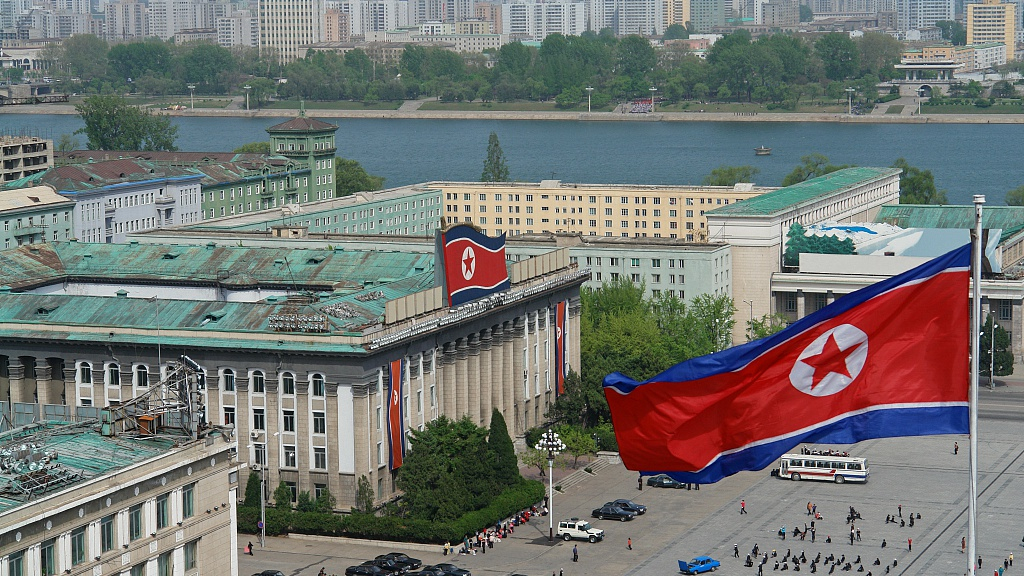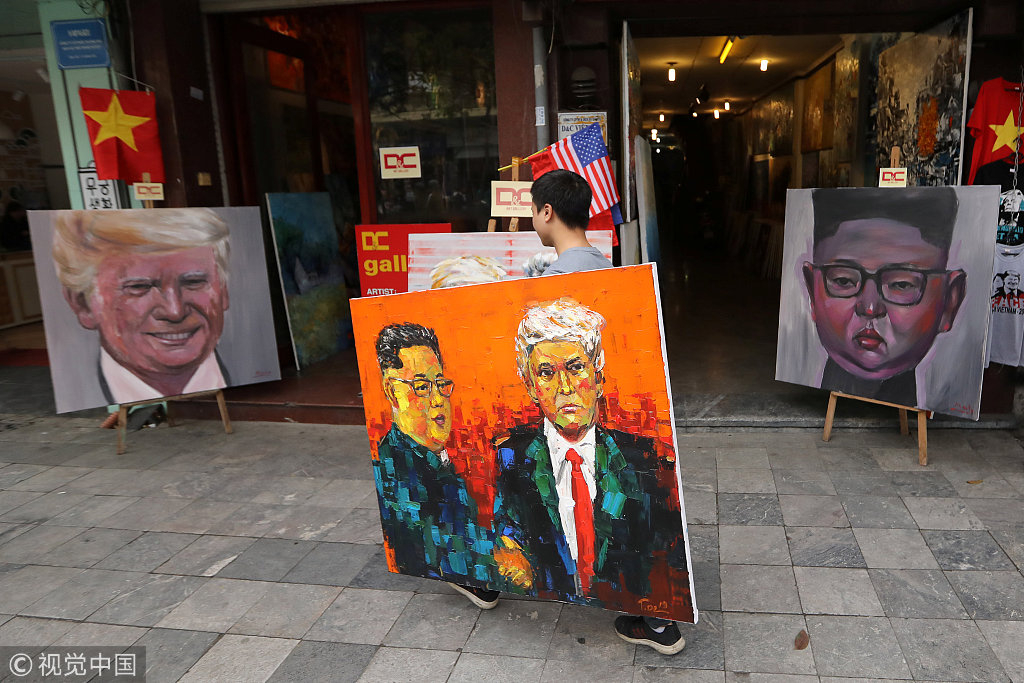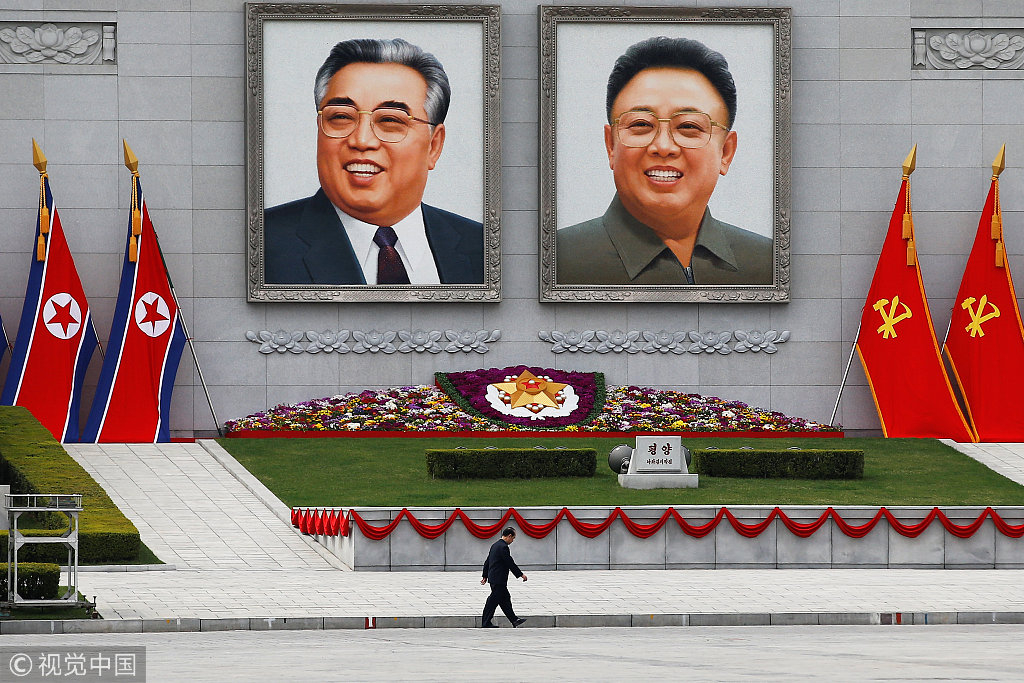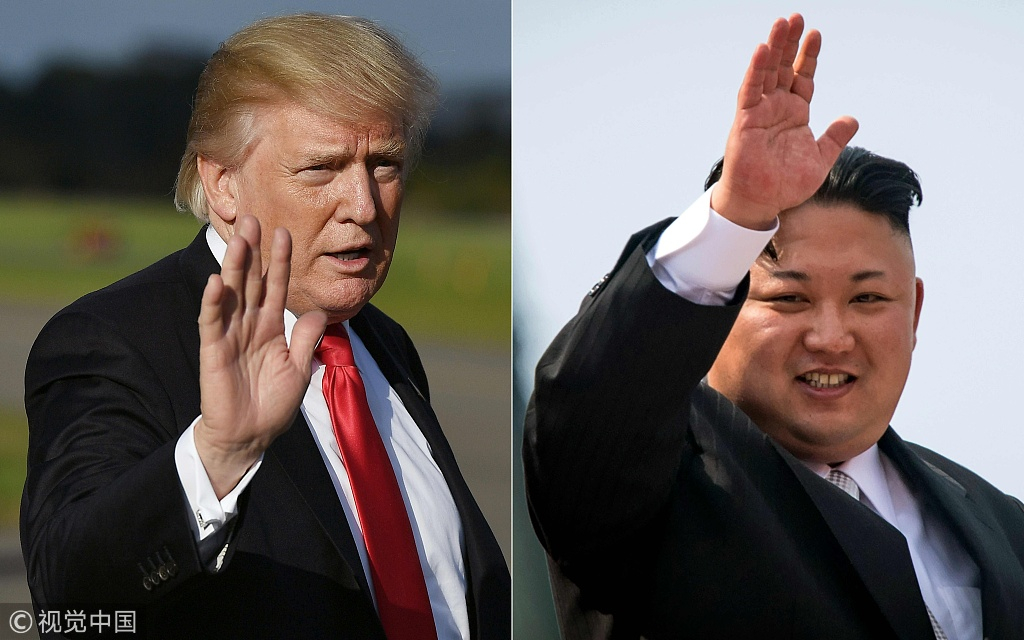
Opinion
22:36, 16-Mar-2019
Why is the DPRK threatening to resume missile tests?
Tom Fowdy

Editor's note: Tom Fowdy, who graduated from Oxford University's China Studies Program and majored in politics at Durham University, writes about international relations focusing on China and the Democratic People's Republic of Korea. The article reflects the author's views, and not necessarily those of CGTN.
Now over two weeks since the car crash summit at Hanoi between DPRK leader Kim Jong Un and U.S. President Donald Trump, the abounding optimism felt in the run-up to that event continues to melt away.
Yesterday, in a specially organized press conference, Pyongyang's Vice Foreign Minister Choe Sun Hui stated explicitly that the country had "no intention" to give in to U.S. demands and threatened to cut off talks with Washington outright with a view to resuming missile testing.
The comments follow what has been a hardening of each side's negotiating position since the fallout of Hanoi, the United States likewise now demanding the DPRK give up its entire nuclear program before receiving any form of sanctions relief.
The increasing stubbornness of each side to give concessions has left some people worried that return to the confrontation seen in 2017 is imminent.
What is behind such a threat from Pyongyang to renew testing? Although it remains to be seen as to whether it will follow through given what is at stake, such a threat is a component of a wider diplomatic strategy which the state has applied now, that is to utilize its nuclear weapons program to force the United States to negotiate on its own terms.

A painting of DPRK's leader Kim Jong Un and U.S. President Donald Trump in Hanoi, Vietnam, February 27, 2019. /VCG Photo
A painting of DPRK's leader Kim Jong Un and U.S. President Donald Trump in Hanoi, Vietnam, February 27, 2019. /VCG Photo
The Trump administration and mainstream media have long painted a misleading narrative that the DPRK's willingness to negotiate its nuclear program was a capitulation to American pressure, this was completely wrong.
With Washington having binned the summit and switching back to maximalist demands, in tandem Pyongyang is now threatening to equally harden its position and similarly consolidate its leverage. It is a solid and cold reminder to the U.S. that a "grocery shopping list" of denuclearization demands is not going to happen and in the face of such, it is prepared to utilize resolve.
Firstly, why are nuclear weapons so important to the DPRK? Since the end of the Cold War international system in 1991, the country has been an isolated state struggling for survival in an American unipolar world which has in many respects left it behind.
Insecure and largely alone, the Juche ideology, prioritizing "self-reliance," continued to consolidate itself in place of Marxism-Leninism. Juche, stresses the maintenance of the states' ideological and political independence from the outside world.
In order to do so, the country's leaders came to the conclusion that the most effective means was to obtain a nuclear capability whereby it could gain an upper hand in diplomacy. Throughout the 1990s and early 2000s, failed negotiations with the United States, as well as a plethora of military-driven political power changes around the world, consolidated this position.

Portraits of DPRK founder Kim Il Sung and late leader Kim Jong Il in central Pyongyang, DPRK, April 16, 2017. /VCG Photo
Portraits of DPRK founder Kim Il Sung and late leader Kim Jong Il in central Pyongyang, DPRK, April 16, 2017. /VCG Photo
Although Kim was well aware pursuing such a program would inevitably hurt the country in terms of tough international sanctions and disapproval, it would be a price worth paying, hence Juche's emphasis upon the value of struggle as a long term incentive to obtain things on one's own terms.
Given this, establishing the country's nuclear capability has been for the past decade its most paramount political priority above all other things, something Kim Jong Un has rapidly accelerated throughout his tenure. His goal has been to negotiate with Washington as an equal and win favorable concessions for the DPRK.
In this case, the idea he would somehow trade his entire deck of cards away so quickly for short term sanctions relief defies logic and reason itself.
Yet in Washington, there is a persisting delusion about this. The current administration has from the beginning advocated, at least in public discourse, a mindset that the DPRK can be compelled to surrender its entire nuclear program through the coercive force of sanctions pressure and if needed, military action, despite all the obvious evidence to the contrary.
In advocating such, the administration has persistently overstated the impact of sanctions on Pyongyang (despite the utilization of increasingly creative measures to avoid them) and in turn, have swallowed their own hype in repeatedly overstating Kim's intention to denuclearize. The persistence of this belief was what ultimately scuppered the summit and led them to calculate that they had the upper hand in demanding more, for Kim than less.
Trump's public attempts to "buy" the country's denuclearization with promises of investment and talk of "economic potential" reflect this mindset, erroneously assuming Kim is desperate and will eventually, give everything if the screws remain tight for long enough. Neither is true.

This combination of pictures shows U.S. President Donald Trump at Morristown, New Jersey, Municipal Airport, September 15, 2017; and DPRK leader Kim Jong Un waving following a military parade in Pyongyang, April 15, 2017. /VCG Photo
This combination of pictures shows U.S. President Donald Trump at Morristown, New Jersey, Municipal Airport, September 15, 2017; and DPRK leader Kim Jong Un waving following a military parade in Pyongyang, April 15, 2017. /VCG Photo
However, as Choe Sun Hui has made publicly clear, in no circumstances will the DPRK capitulate to unilateral demands from the United States. Whilst it is clear that Kim Jong Un is willing to improve and refine his relationship with Washington in ways never seen before, this was always about obtaining as much for the DPRK as possible whilst giving away as little as possible.
Whilst Kim would prefer sanctions relief, if his country has to suffer in the short term for political necessities, then so be it.
As a result, by pondering over a potential return to missile testing, the DPRK are reminding the United States of their negotiating strength and are issuing a public rebuke against "maximalist" demands for denuclearization, illustrating that if Washington is not prepared to talk fairly, they will accordingly sharpen their leverage. They do not fear the pressure of sanctions.
Pyongyang is ultimately open to securing an agreement with Washington, but it just isn't and never will be prepared to concede everything which made these talks possible in the first place.
(If you want to contribute and have specific expertise, please contact us at opinions@cgtn.com.)

SITEMAP
Copyright © 2018 CGTN. Beijing ICP prepared NO.16065310-3
Copyright © 2018 CGTN. Beijing ICP prepared NO.16065310-3